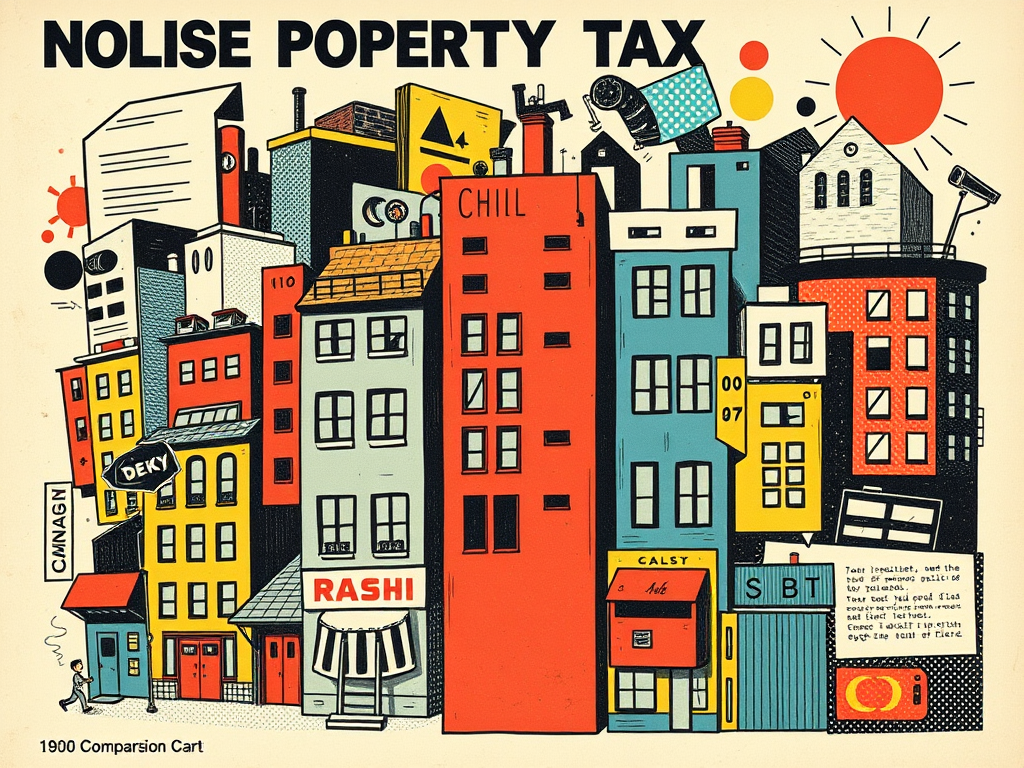
Golden Visa Programs: Economic Boon or Ethical Dilemma?
Reading time: 15 minutes
Table of Contents
- Introduction
- The Concept of Golden Visas
- Economic Benefits of Golden Visa Programs
- Controversies Surrounding Golden Visas
- Case Studies: Success Stories and Cautionary Tales
- The Future of Golden Visa Programs
- Conclusion
- FAQs
Introduction
In recent years, the concept of “Golden Visas” has gained significant traction in the global economic landscape. These programs, offering residency or citizenship in exchange for substantial investments, have become a contentious topic, sparking debates about their economic benefits and ethical implications. As we delve into this complex issue, we’ll explore the various facets of Golden Visa programs, their impact on host countries, and the controversies that surround them.
The Concept of Golden Visas
Golden Visa programs, also known as investor visa schemes, are initiatives implemented by various countries to attract foreign investment. These programs typically offer residency rights or even citizenship to individuals who make significant investments in the host country, often in real estate, government bonds, or local businesses.
Key Features of Golden Visa Programs
- Investment Thresholds: Minimum investment amounts vary by country, ranging from hundreds of thousands to millions of dollars.
- Residency Benefits: Most programs offer long-term residency permits, with some leading to permanent residency or citizenship.
- Freedom of Movement: Many Golden Visas provide access to multiple countries, particularly within the European Union.
- Tax Advantages: Some programs offer favorable tax conditions for investors.
The allure of these programs lies in their ability to provide high-net-worth individuals with increased global mobility, access to new markets, and potential tax benefits. For host countries, the promise of significant foreign direct investment is a compelling reason to implement such schemes.
Economic Benefits of Golden Visa Programs
Proponents of Golden Visa programs argue that they bring substantial economic benefits to host countries. Let’s examine some of the key advantages:
Foreign Direct Investment
One of the primary objectives of Golden Visa programs is to attract foreign capital. This influx of investment can have significant positive effects on the local economy:
- Real Estate Market Stimulation: In countries where real estate investment is a qualifying option, such as when buying real estate in greece, the property market often sees increased activity and rising prices.
- Job Creation: Investments in businesses or development projects can lead to new employment opportunities for local residents.
- Economic Diversification: Foreign investment can help countries diversify their economic base, reducing reliance on traditional industries.
Government Revenue
Golden Visa programs can be a significant source of government revenue:
- Application Fees: Countries charge substantial fees for processing Golden Visa applications.
- Tax Revenue: Increased economic activity and high-net-worth residents can boost tax receipts.
- Bond Investments: Some programs require investments in government bonds, providing direct funding for public projects.
Skills and Knowledge Transfer
Attracting successful entrepreneurs and business professionals can lead to valuable skills and knowledge transfer:
- Innovation: Investors may bring new technologies or business practices to the host country.
- Networking: International investors can facilitate connections between local businesses and global markets.
- Entrepreneurship: Successful business people may start new ventures, fostering local entrepreneurial ecosystems.
Controversies Surrounding Golden Visas
Despite the potential economic benefits, Golden Visa programs have faced significant criticism and controversy. Let’s explore some of the main concerns:
Security and Due Diligence Issues
One of the primary criticisms of Golden Visa programs is the potential for abuse by individuals seeking to evade law enforcement or engage in money laundering:
- Inadequate Vetting: Critics argue that some countries may not conduct sufficiently thorough background checks on applicants.
- Money Laundering Risks: The large sums involved in these programs make them potentially attractive for money laundering schemes.
- National Security Concerns: There are fears that Golden Visas could be exploited by individuals with links to organized crime or terrorism.
Ethical Concerns
The concept of “selling citizenship” raises ethical questions about the nature of national belonging and civic responsibility:
- Commodification of Citizenship: Critics argue that Golden Visas reduce citizenship to a mere commodity, undermining its social and political significance.
- Inequality: These programs are inherently exclusive, available only to the wealthy, potentially exacerbating social inequalities.
- Brain Drain: Some argue that Golden Visas encourage talented individuals to leave their home countries, contributing to brain drain in developing nations.
Economic Distortions
While Golden Visas are touted for their economic benefits, they can also lead to market distortions:
- Real Estate Bubbles: In countries where property investment is a popular option, Golden Visas can contribute to inflated housing prices, making homes unaffordable for local residents.
- Uneven Development: Investments may be concentrated in luxury developments or urban centers, neglecting other areas or sectors of the economy.
- Dependence on Foreign Investment: Over-reliance on Golden Visa investments could make economies vulnerable to external shocks or changes in investor sentiment.
Case Studies: Success Stories and Cautionary Tales
To better understand the real-world impact of Golden Visa programs, let’s examine some case studies from different countries:
Portugal’s Golden Visa Program
Portugal’s Golden Visa scheme, launched in 2012, has been widely regarded as a success story:
- Economic Impact: The program has attracted billions of euros in investment, primarily in real estate.
- Job Creation: It has contributed to job growth in construction and related sectors.
- Challenges: However, it has faced criticism for driving up property prices in major cities like Lisbon and Porto.
Malta’s Individual Investor Programme
Malta’s program, which offers citizenship rather than just residency, has been more controversial:
- Economic Benefits: The program has generated significant revenue for the Maltese government.
- EU Concerns: It has faced criticism from the European Union over security and transparency issues.
- Recent Reforms: Malta has implemented stricter vetting procedures in response to these concerns.
Cyprus: A Cautionary Tale
Cyprus’s Golden Visa program serves as a warning about the potential pitfalls of such schemes:
- Scandal: The program was suspended in 2020 following allegations of corruption and the granting of visas to individuals with criminal records.
- Economic Impact: While it brought in significant investment, the program’s abrupt end left many projects in limbo.
- Reputational Damage: The scandal has had lasting negative effects on Cyprus’s international reputation.
The Future of Golden Visa Programs
As we look to the future, several trends and potential developments are worth considering:
Increased Scrutiny and Regulation
In response to criticisms and scandals, we can expect:
- Stricter Due Diligence: Countries are likely to implement more rigorous vetting procedures for applicants.
- International Cooperation: There may be increased collaboration between countries to share information and prevent abuse of these programs.
- Transparency Measures: Governments may introduce more transparent reporting on the economic impacts and beneficiaries of Golden Visa schemes.
Evolving Investment Criteria
The focus of Golden Visa programs may shift:
- Diversification: Countries may encourage investments in a wider range of sectors, moving beyond real estate.
- Sustainability: There could be a greater emphasis on investments that contribute to sustainable development goals.
- Active Involvement: Some programs may require more active participation from investors, such as job creation or technology transfer.
Geopolitical Factors
Global events and trends will continue to shape the demand for and nature of Golden Visa programs:
- Political Instability: Ongoing geopolitical tensions may drive increased interest in second citizenships or residencies.
- Climate Change: As climate risks increase, Golden Visas may become more attractive to those seeking safer havens.
- Post-Pandemic Recovery: Countries may use Golden Visa programs as a tool for economic recovery in the wake of the COVID-19 pandemic.
Conclusion
Golden Visa programs represent a complex and often controversial aspect of modern global economics and migration. While they offer potential economic benefits to host countries, including significant foreign investment and job creation, they also raise serious ethical and security concerns.
The future of these programs will likely involve a delicate balancing act between attracting investment and addressing criticisms. Increased regulation, more diverse investment options, and a focus on sustainable development could help mitigate some of the negative aspects of Golden Visas.
Ultimately, the success and acceptability of Golden Visa programs will depend on their ability to deliver tangible economic benefits while maintaining robust security measures and addressing ethical concerns. As the global landscape continues to evolve, so too will the nature and implementation of these controversial investment migration schemes.
FAQs
-
Q: What is the minimum investment required for most Golden Visa programs?
A: The minimum investment varies widely between countries, typically ranging from €250,000 to €2 million or more. Some popular programs, like Portugal’s, start at €500,000 for real estate investments.
-
Q: Do Golden Visas automatically grant citizenship?
A: Most Golden Visa programs offer residency, not immediate citizenship. However, they often provide a path to citizenship after a certain period of residency, usually 5-10 years.
-
Q: Are Golden Visa holders required to live in the host country?
A: Requirements vary, but many programs have minimal physical presence requirements. Some may require as little as 7 days per year in the country to maintain residency status.
-
Q: Can Golden Visas be revoked?
A: Yes, Golden Visas can be revoked if the holder is found to have provided false information, engaged in criminal activity, or failed to maintain the required investment.
-
Q: How have Golden Visa programs affected local housing markets?
A: In some countries, Golden Visa programs have contributed to rising property prices, particularly in prime urban areas. This has led to concerns about housing affordability for local residents in cities like Lisbon and Athens.

Article reviewed by Marco Rossi, Private Equity Portfolio Director | Transforming Distressed Assets into High-Performance Investments, on May 15, 2025





